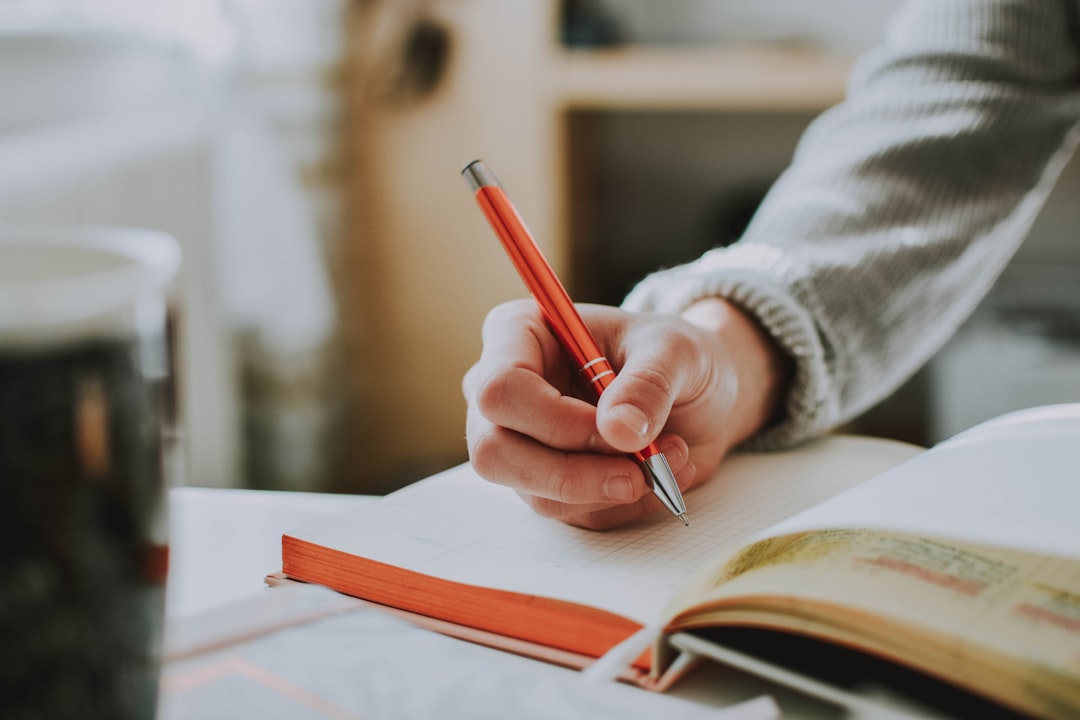I Am Anxious... Garrett Francis
The writer discusses a horrifying second grade experience, parental anxiety, journaling, and making new friends.
Garrett Francis is an author who writes novels, short stories, essays, children's books and screenplays, many of which he publishes on his newsletter, The Em(erald) Dash.
At the time of this writing, I'm in the middle of serializing my novel through my newsletter. The novel is titled, And in the Dark They Are Born, and follows a deaf teenager and a middle-aged scavenger as they navigate a post-blackout America occupied by warring tribes.
The project's first draft dates back to 2013, and over the years has accumulated a history of its own — it was, until an abrupt resignation, represented by an agent (and carefully considered by high profile editors); it was published as the first project of the micro press I founded then four years later closed; it was almost scrapped entirely; it underwent a title change; etc.
The short of it, I suppose, is that serializing the project through my newsletter is an achievement of persistence, of not giving up on a project just because it hasn't found its home yet. But I also hope that it's a productive first step toward finding my readers. Because to this point that in itself has been quite tricky.
You can find him at his newsletter.
How long have you been an anxious person?
For as long as I can remember, though the earliest memories I have of it can be traced to second grade, when I was seven or eight years old.
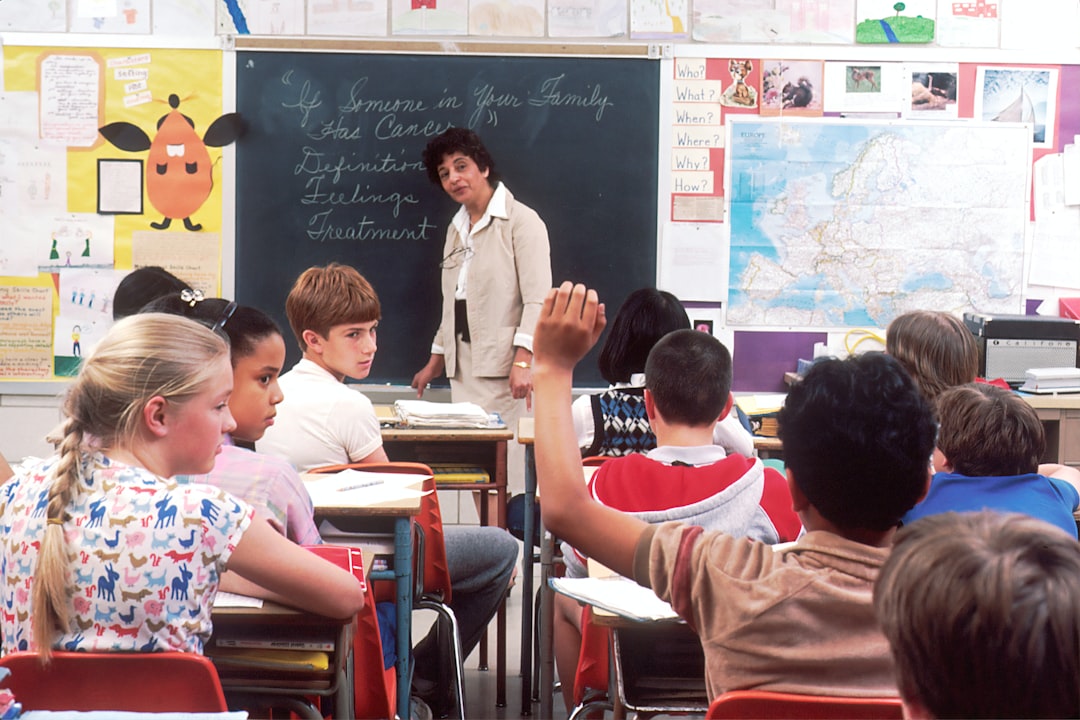
What is your earliest memory of being anxious?
The earliest memories I have of my anxiety come from second grade. I grew up on a small farm outside of a small town called Hart, Michigan. There were a few elementary schools in the district, and I attended the one nearest to my house, along with all the neighbor kids I'd grown up with. My best friend lived on the same road I did, and we hung out a ton. So when second grade came along, and I heard the news that I'd be in the same class as him, and that his mom would be our teacher, I was, to say the least, excited.
But it only took a couple of months for it all to start souring. Because as I remember it, my best friend was starting to branch off one way, toward a different friend/friend group, and I was branching off a different way. I wasn't unhappy with him. He wasn't unhappy with me; but his mom... our teacher? She was. For whatever reason, she didn't like that we were growing apart.
Maybe my memory is off. Maybe her son was devastated by it. Maybe "mother" and "teacher" were roles that just couldn't be kept separate. I don't really know, and I don't think I ever will.
Regardless, that teacher, in ways that a teacher can without losing their job, started bullying me for it. She started bullying my family for it. I remember being punished for things I didn't do. I remember her treating me differently than my classmates. I remember her lobbying false accusations at my family as things intensified and there were meetings between she and my parents (accompanied by the school's principal and the school's counselor).
I'd loved going to school. And then all of a sudden I dreaded it. I cried most mornings before getting into the car. I developed consistent stomachaches from the anxiety. And I know I didn't have the words to describe what was happening. I didn't have the experience, to know that I was being bullied at all. Why would I? How would I? This was my teacher; in my experience, teachers didn't do that. But this was also my friend's mom; a family friend of ours for at least a few years at that point. They didn't do that either, right?
The natural conclusion for a seven-year-old, I feel, is to agree with the assessment being provided by someone with authority, as confusing as it may be.
I can't remember how long it dragged out, but I think it was late winter when my parents made the decision to transfer me to a different school.
Free from that teacher, the anxiety, of course, didn't go away entirely, but the new environment a great for me. I made friends. I wasn't ever bullied again by a teacher. The dread went away. The stomachaches, too.
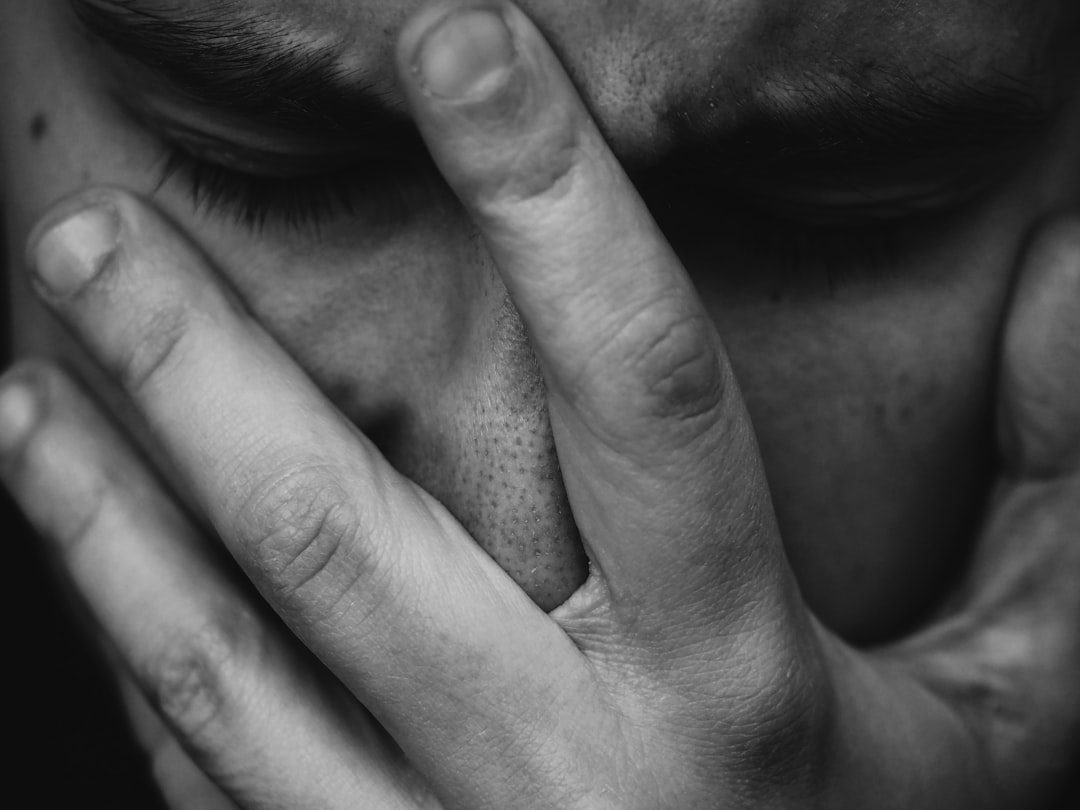
What are some of your anxiety triggers? What makes you most anxious?
I became a dad in July 2020, at the height of the COVID-19 pandemic, and in the years since, being "Dad" has become a huge, huge part of my identity. But, because of a few factors — the pandemic, for one, but also because I work remotely, and because my family and I live thousands of miles from our loved ones — very few people have actually seen me as a dad.
So now, as my kiddo is getting older, and becoming more social, it's like I'm still stuck in the newborn phase of "being seen" as a parent. Like I don't know how to interact with other parents. But also that there's a compare and contrast going on, in parenting styles and tactics, where more often than not I'm deeming myself "lesser than."
This recently came to kind of a head when my kiddo attended their first birthday party, alongside all of their daycare friends. Because daycare continues to utilize COVID-19 protocols at drop off and pickup, mingling with other parents just doesn't really happen. It's in and out, nods of, "Hello" and, "Have a nice day," and that's all. So being dropped into that environment, with all these parents who seem to have far more figured out about it than I... yeah, that's probably the most anxious I've felt in a little while.
I think if I can make some generalizations from that, it'd be that social situations make me most anxious, and that my anxiety is peak-triggered when in those situations I feel like I'm being seen as unintelligent, or slow, or not worthy of interaction or effort.
And with a kiddo, the anxiety in many situations becomes amplified. Because not only might I be failing myself, but I could also be failing them.
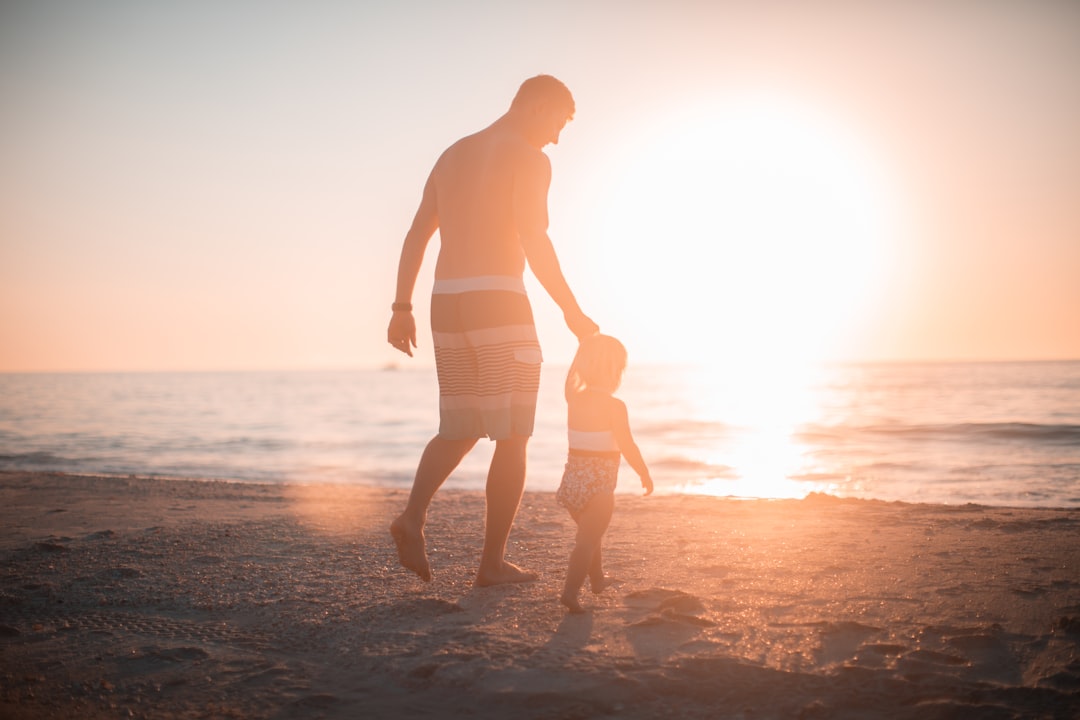
How do you feel physically and emotionally when you’re anxious?
I think more than anything else I get tight. I kind of retreat into my shell, though not entirely. I might slouch more than I usually do (I entered puberty early and grew to six-feet-tall at the age of twelve, so I developed a slouch back then to try and make myself less noticeable; funny thing is that I didn't grow any taller afterward and am the same height today).
But I also might hold my shoulders higher, like I want my frame to appear bulkier. I'll fold my arms or put my hands in my pockets.
Emotionally, when I say "tight," I just mean that my emotions aren't as fluid, or as dynamic, as they normally would be. Like I'm keeping things as close to "the chest" as I can, out of fear. Like with the anxiety my body has shoved up some guardrails to keep me in a certain zone. Like I can't be happy, but I also can't be sad. Just kind of looping back and forth between worried/nervous and frustrated, with rare spikes into something near happy.
What do you do when you feel anxious? How do you take care of yourself in those situations? Do you have any anxiety management tips or tricks?
This is definitely still a work in progress for me. In the most anxious of situations, I think that I can do a decent job of talking myself down internally. Or, doing so long enough for a positive interaction to start changing the course. Like treading water until a rescue boat comes.
But when my kiddo was an infant, and my nervous system was fried (from zero sleep + zero "village" help + pandemic + working full-time in a small apartment whilst learning to be a parent for the first time), I started therapy, which was great, and continues to be great.
I also started doing this thing where when I'm feeling like I'm losing control over my anxiety, I'll either sit or lay on the floor, and just breathe. For me, the floor bit is important because it literally grounds you, and it's also this sort of reminder that you're in control of at least some of this, at least in how you respond next — it reduces the first step, anyway, to standing up. Almost like a reset.
Regular exercise has always been very important in keeping my mental health balanced, as has creative expression. I aim to do both 2-3 times per week, though if I had the time, I'd 100% aim to do each every single day.
I've also started journaling, and I think that has helped so far, and will continue to help in the long term. Even if I'm not journaling about my anxiety directly, I do journal about my day, or a conversation I had, or whatever, and that by itself frees up space in my body to better confront future anxieties in the moment. Journaling helps create mental and emotional space for me in that way.
How do you feel your anxiety affects your family, friends, and overall social life?
I'm only in the past month or so starting to be able to put words to this, but I'm learning that I've never been very good at making friends outside of structure. Growing up in the small town that I did, what you had was what you had. I mean, I graduated with 80 other kids. So there really wasn't much opportunity for social mobility. Or, rather, there weren't many opportunities to operate outside of structure... the nearest movie theater, for example, was a twenty-mile drive, and the nearest mall was a forty-five-minute drive — meeting someone by coincidence and striking up a friendship wasn't common.
Further, if you lost your social group because of your behavior, there was a good chance that you couldn't replace it with a different social group, because, well, your actions were seen by all.
So, you made friends within the structures you had (classrooms, sure, but also sports teams, workplaces, etc.), and then you maintained those friendships.
In turn, I've always been good at making friends within structure. And I've always been quite bad at making friends outside of structure, which started becoming apparent for me in college.
Now, as an adult, there are different ways that you can implement structure. You can volunteer. You can join recreational sports leagues. You can have a job that brings with it a built-in community. You can turn to your religion and its place(s) of worship.
But for me — someone who isn't religious, someone working remotely Monday through Friday, from 9-5, someone with an almost-three-year-old — it's very difficult to carve out time to establish said structures.
So, I often find myself quite lonely.
And to say that it doesn't have anything to do with my anxiety, I think, would be inaccurate. Because there have been occasions where I've successfully carved time out for social structures to be built, and I end up making zero moves, due to what I've heard called "paralysis by analysis." Overthinking it. Poking, stretching, holding things up to the light, and making it all something that's much higher stakes than it needs to be.
Or, because I've built these structure-building opportunities into something with high stakes, I'm let down because I don't walk away from experiences with a new friend or whatnot.
Things can't just be what they are, because my anxiety is asking them to fill a hole. And, the more that hole doesn't get filled, the worse about myself I can feel. Round and round we go.
How do you feel about the portrayal of mental health and anxiety in Pop Culture (books, movies, music, etc)? Do you feel it's accurate?
It's refreshing to see more and more contemporary portrayals of mental health and anxiety in pop culture. Those that I've seen/heard/read have come across as accurate, at least as much as I think they can at this time.
By that I simply mean: I think in many ways we're only just now beginning to understand what it is we face mentally as modern humans. In the past one hundred years alone, our species has experienced great change. And I think, despite how smart we think we are, it'll take many more years to fully grasp the effects those changes have had on us.
One example that comes to mind is how it's commonplace these days for children to move far away from their ancestral home (like me), as well as how with modern advances parents can raise children without the "village" thought to be inherent with said ancestral home.
Not that long ago, this wasn't the case. I mean, it wasn't even the case with my own family. I am one of just a few from either side of my family who have moved out of the state of Michigan — and that's with my mother and father having four siblings each, all of whom have multiple children.
What I'm saying — or, at least what I'm trying to say — is our relationships with everything are different than what they had been for thousands of years on this planet. With family. With friends. With spirituality, and work, and nature.
And to first understand how it is these sorts of changes affect us mentally, and then to transform those understandings to an art form, well, it's very difficult to do, and to do it in both a specific and accessible/universal way.
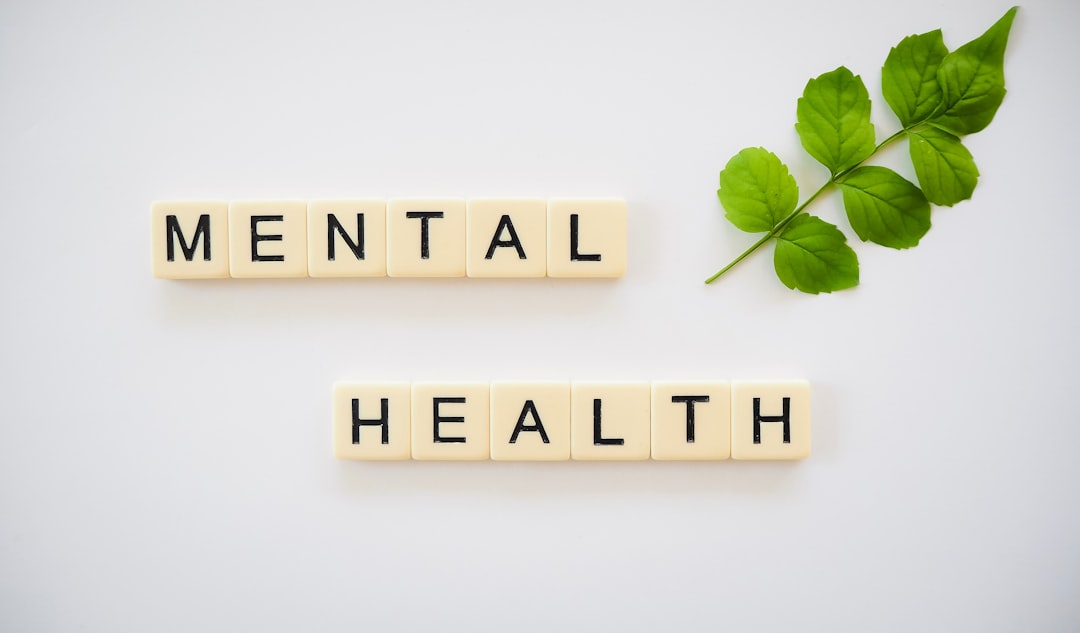
What is the best advice you've ever received?
I think the best advice I've ever received was from a college professor, who said something along the lines of, "Success in the writing world comes down to three things: 1) talent, 2) consistency, and 3) luck."
They went on to emphasize the "luck" part of the equation, how lumped into it is "timing," and just how big of a role it plays. Because the truth is that there is just so much outside of your control. Not just as a writer, obviously, but as a human.
And I think rather than ask you to dwell on that which you cannot control, the advice here is to of course control what you can — which is only one thing: showing up and trying your best — and to be unafraid to redefine what "success" means, or what success looks and feels like.
Further, I don't know if others feel the same when hearing it, but for me, the advice helps me keep things in perspective, in terms of time. I can get really impatient, and get really down on myself for things not going quite how I wanted them to go, or whatnot. But it's comforting to think that, "You know what? It just might not be my time yet."
Is there anything else you would like to add?
Because if you're like me and need to hear it from time to time: Be kind to yourself. Talk to yourself with the care and respect you'd extend to your best friend.
Editor’s Note: This interview was edited slightly for length and clarity.
Thank you, Garrett, for sharing! I’m a big fan of Garrett’s newsletter and highly recommend it. Thanks again, Garrett!
If you are interested in being a part of the newsletter in the coming weeks and taking the I Am Anxious… questionnaire, please email me (scott.neumyer@gmail.com) and I’ll get you on the list! I’d love to have you.
Be well and keep talking.
DISCLAIMER: I am, by no means, a medical profession. If you need help, please seek qualified medical attention. This newsletter, while informative and fun, is no substitute for the real thing.







